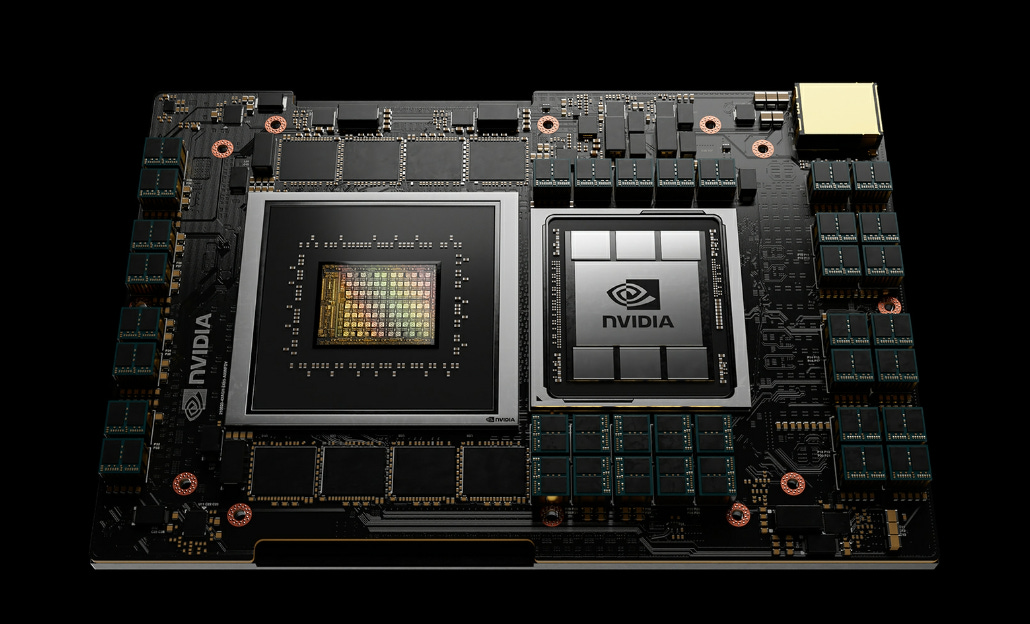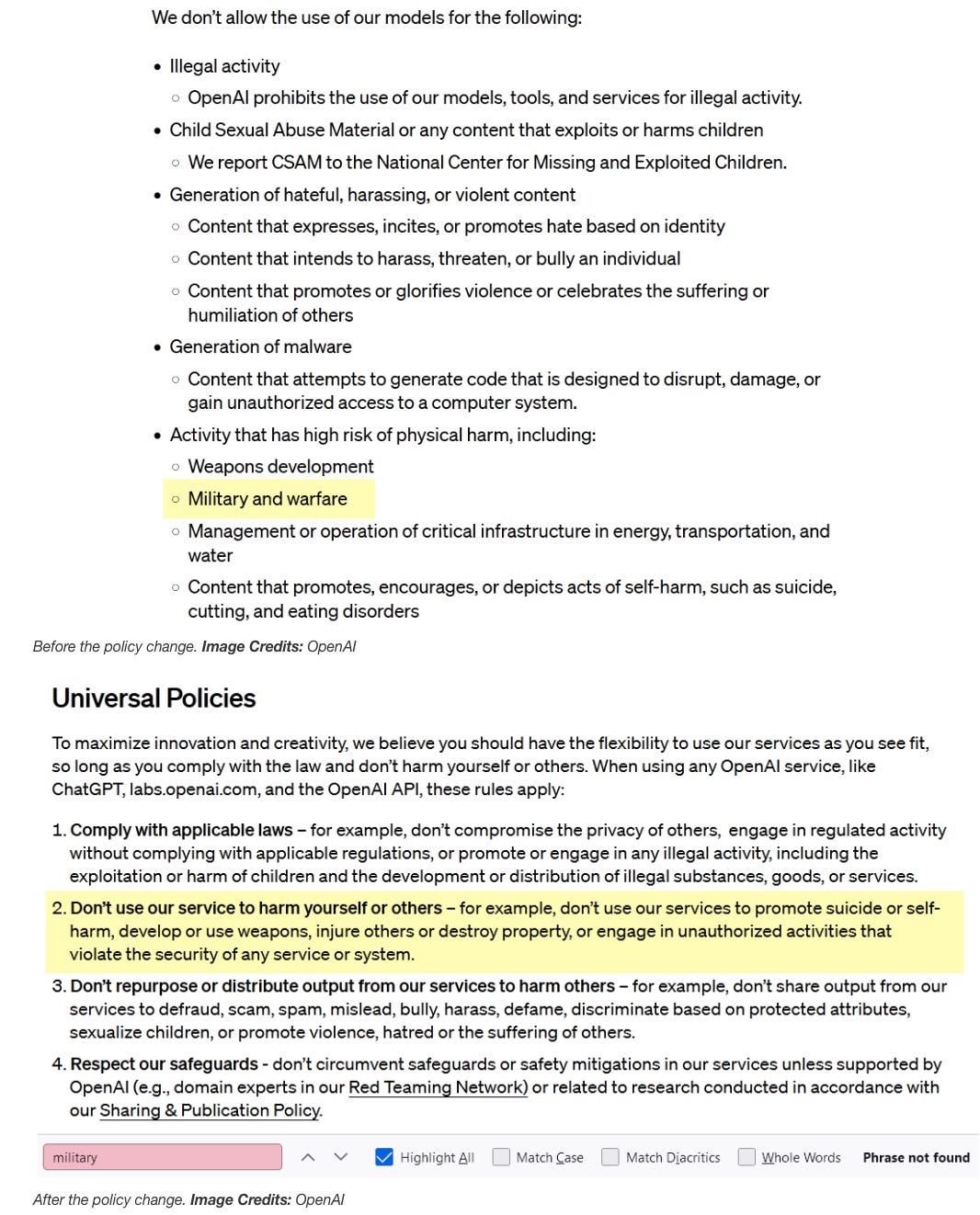- Yaro on AI and Tech Trends
- Posts
- 🏴☠️The Nvidia Chips Black Market is Thriving
🏴☠️The Nvidia Chips Black Market is Thriving
Plus: OpenAI has shifted its stance on Military Applications. And Watch this robot cook a meal.
Hello Everyone: Today, we commemorate Martin Luther King Jr. Day, honoring the enduring impact of Dr. King. Born as Martin King Jr., this civil rights icon was not only a preacher, scholar, and organizer but also a world-renowned leader, celebrated orator, and writer, who earned the Nobel Peace Prize. Surprisingly, he was also an avid pool player. Dr. King, who started college at the age of 15, faced numerous challenges, including being imprisoned over 25 times and surviving multiple assassination attempts. Remarkably, his most famous speech, 'I Have a Dream,' was delivered extemporaneously. Dr. King's legacy continues to inspire and challenge us.
Lets get to business, this is what we got today…
The Nvidia Chips Black Market is Thriving
OpenAI has shifted its stance on Military Applications
Watch this Robot Cook a Meal
🤔 What Does that even Mean? (Gradient Boosting)
Follow the Money
🧰 AI Tools of the Day (Avatars)
💪🏽 Important AI News and Trends.
AI will affect 40% of jobs worldwide, the IMF said ahead of the World Economic Forum in Davos (IMF)
Using AI, MIT researchers identify a new class of antibiotic candidates (FreeThink)
Augmenting human intelligence beyond AI will take us much further than creating something new (Every)
Microsoft wants to automatically launch its Copilot AI on some Windows 11 devices (TheVerge)
🌐 Web3 and Other Tech news.
The Dolphins-Chiefs NFL game on Saturday was the most streamed live event in U.S. history, drawing almost 28 million viewers. Accounted for 30% of Internet traffic (Comcast)
Is it time to leave Substack? Substack keeps the Nazis, loses Platformer (TheVerge)
What is the Fediverse and why is it important (TC)
The Weeknd’s ‘Blinding Lights’ Is the First Song to Pass 4 Billion Streams on Spotify, which equals to about $22M in royalties (Variety)
BlackRock CEO Larry Fink Backs Ether ETF (CoinDesk)
The Nvidia Chips Black Market is Thriving

A recent report revealed that despite the U.S. ban, various entities in China, including military bodies, state-run AI research institutes, and universities, have been acquiring small quantities of Nvidia semiconductors, such as the A100 (A ChatGPT-like model needs 30,000 of these cards) and H100 chips, both banned by the U.S. for export to China.
The high demand for these chips, which are crucial for AI due to their superior data processing capabilities, underlines the challenges the U.S. faces in fully enforcing its export restrictions. Notably, these purchases, often through an underground market, include entities with potential military affiliations. Despite alternatives from companies like Huawei, Nvidia previously held a dominant 90% share in China's AI chip market. The U.S. aims to impede China's AI advancements by restricting access to these advanced chips, but experts acknowledge the difficulty in completely enforcing such bans due to the ease of smuggling the small-sized chips. The report highlights that the quantities purchased are relatively small, inadequate for building large AI models like GPT, but sufficient for enhancing existing systems or performing complex tasks. Tsinghua University alone has purchased about 80 A100 (for around $10,000 a piece) chips since the ban, emphasizing the continued reliance on and access to these restricted technologies in China.
📁 Learn OSS repos using AI
Explore 300+ open-source repos by talking to them using AI (Here)

OSS libraries are software libraries where all the source code is available in the public domain.
OpenAI has shifted its stance on Military Applications

OpenAI has subtly shifted its stance to allow for potential military applications of its technologies. This change involved removing the explicit prohibition against using OpenAI products for "military and warfare" purposes.
While OpenAI maintains its stance against using its tools to harm individuals, develop weapons, or for surveillance, the organization has opened the door to national security uses that align with its mission, exemplified by its collaboration with DARPA on cybersecurity tools. The policy shift signifies a move from a clear-cut prohibition to a more flexible approach, potentially accommodating non-warfare military activities like research and infrastructure support. Although OpenAI has not explicitly confirmed its openness to military customers, the absence of a direct denial in their response to inquiries suggests a broader scope for military engagement, navigating the complex landscape of technology’s role in military and government applications.
Take advantage of our 2024 Special.

You can still get these “Deals” for FREE.
Download our 70+ AI Learning Resources.
And a powerful list of 250+ AI Tools Here.
Watch this Robot Cook a Meal
Stanford University researchers have developed a cost-effective robot, Mobile ALOHA, capable of performing complex tasks like cooking a three-course meal and autonomously cleaning. This achievement, accomplished with a modest budget of $32,000 using off-the-shelf parts and 3D-printed hardware, marks a significant advancement in robotics.
The robot was trained through a blend of remote operation and AI learning, including a "co-training" approach that utilized both new and existing data to rapidly acquire diverse skills. This project demonstrates the potential of combining affordable robot hardware with advanced AI to enhance robotic capabilities, showing promise in tasks such as folding laundry, previously deemed challenging due to irregular shapes and textures. The success of Mobile ALOHA underlines the importance of AI in robotics and suggests the transferability of training data across various tasks, a development that could significantly broaden the scope and efficiency of robotic applications in everyday settings.
Follow The Money
$20M raised by Neocis, a Miami-based company that specializes in robot-assisted dental implant surgery.
$15M snatched by Finoa, a Berlin-based regulated crypto platform for smart capital allocators.
$10M raised by Avante, a Seattle, WA-based enterprise software startup.
$3.6M by Mercor, a San Francisco-based provider of a fully-automated platform, which uses AI to assess and match talent with companies, raised in funding.
🤔 What Does that even Mean?
Gradient Boosting: A machine learning technique used for regression and classification problems that builds a predictive model in stages, with each stage correcting errors made by the previous ones.
Example: An e-commerce site employs gradient boosting to refine product recommendations. Each successive model corrects the previous one's errors, enhancing recommendation accuracy over time.
📰 Publications I am currently reading and recommending:
Short Squeeze - One stop for Financial News and Advice.
Goal Accomplishment - Join us for the real-life strategies and practical support you need to turn your aspirations into achievements.
5 Bullet Friday - Things Tim Ferriss has found (or explored) that week, including books, gadgets, hacks, and more.
🧰 AI Tools of the Day
Avatars
Webcam Effects - Google Chrome Extension for face beautification, background blurring, and background replacement.
Artisse - AI to create hyper-realistic self-portraits.
Akool - Tool to create personalized avatars and swap faces.
Delphi - A tool to clone influencers, creators, experts, and coaches digitally.
We have added over 100 tools to our AI tools database. Get 300+ Tools free here.
Reply